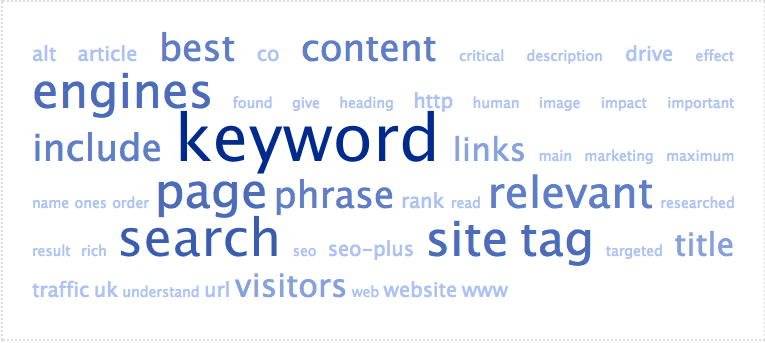Master the Keywords, Dominate the Search Rankings

Optimizing a website to improve its search engine performance is a handy skill for any webmaster to have. If you’d like to learn the most important trick in the SEO game, though, what you need to master is the proper use of keywords. Choosing and employing keywords wisely will dramatically increase the impact that your optimization efforts have.
The first element you need to consider when selecting your keywords is your audience. Think about the ideal first-time visitor you’re hoping to bring to your site. What are they looking for?
What are you going to give them? Most importantly, what search terms align most closely with the focus of your site? The goal here is to concentrate on optimizing for keywords that will lead to a highly satisfactory first-time visit.
Once you have some rough ideas about keywords that would suit your site and its subject, your next stop is at Google’s AdWords keyword tool. Spend some time getting to know this handy piece of software.
If you need good links to help you increase your SERP positions you should work with professionals, such as Seoday.co.uk, see their offer here: http://seoday.co.uk/seo-packages/. They might be a little expensive but trust me deserve every single penny! They helped me a lot with all my affiliates projects!
It will be extremely helpful not only at the beginning of your SEO work but throughout the optimization process. The keyword tool shows you how much traffic a given keyword pulls in. It also suggests related keywords, which can help you broaden your field of potential search terms.
Speaking generally, you have two ways to incorporate your chosen keywords into your site. The first of these is in your HTML code. This means tweaking the information in the HTML tags on your website’s pages to ensure that your keywords show up in tags that receive added emphasis when search engines index your site.
The most important tags include the title tag, heading tags, and the meta tag on each page. Make an effort to insert your keywords here while keeping the tag content relevant to the page in question.
The second place to put keywords is, of course, within your site’s content. When you do this, you need to be even more careful than you were with your tags.
While adding keywords for SEO is important, it always has to come second behind providing useful information to your visitors. Don’t make any SEO tweaks that make your site harder to use or understand. Also, don’t “stuff” your pages with a high percentage of keywords. This sets off warning bells when the search engines analyze your site.
As you become more familiar with choosing and incorporating keywords, you’ll be ready to try your hand at long tail keywords. As their name implies, these are extended keywords (phrases, really) several words in length.
Long tail keywords are challenging because they’re harder to work into your content and code, and they don’t receive as much traffic as shorter, more general keywords. They’re worth optimizing for, though, because it’s relatively easy to dominate the search rankings for a long tail keyword if you do your SEO work well.
SEO is a very broad field, and there is a great deal of additional information on the subject out there waiting for you. You can experiment and practice with any number of different optimization techniques. If you take the time to learn your keywords thoroughly, though, you’ll be able to do great work using virtually any SEO tactics.


